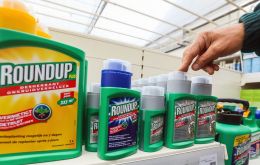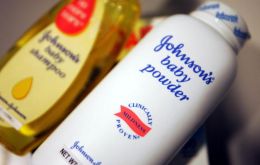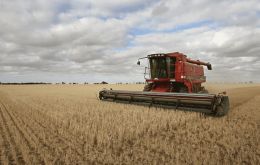MercoPress. South Atlantic News Agency
Stories for 2020
-
Thursday, July 9th 2020 - 08:34 UTC
Scotland exempts quarantine period for arriving travelers from 57 countries and 14 UKOTs. List excludes Latam and Spain

Passengers arriving in Scotland from 57 overseas destinations that have similar or lower levels of coronavirus (COVID-19) infection than Scotland will no longer need to quarantine. Travelers from the 14 UK overseas territories will also be exempt.
-
Thursday, July 9th 2020 - 08:30 UTC
Hate speech: Germany insists in regulating online social networks, despite Facebook's promises

Germany is determined to expand its attempts to regulate online hate speech even as Facebook promises to do more to clean up its site after a global advertiser boycott, with politicians saying the issue is too important to leave to self-regulation.
-
Thursday, July 9th 2020 - 08:16 UTC
Bayer's weed killer Roundup settlement delayed as new questions arise

Bayer has agreed to delay part of a proposed settlement of allegations that its widely used weed killer Roundup caused cancer after a US judge questioned its plan to deal with future claims.
-
Thursday, July 9th 2020 - 07:59 UTC
Campaign to stop Johnson&Johnson selling its talk Baby Powder worldwide

More than 170 nonprofit groups on Wednesday called for Johnson & Johnson to stop selling its talc-based Johnson’s Baby Powder world-wide, citing concerns that it contains cancer-causing asbestos, according to a statement from advocacy group Black Women for Wellness.
-
Thursday, July 9th 2020 - 07:49 UTC
Can Brexit Britain keep its word to three million Hong Kongers

By Gwynne Dyer – ”We will grant British National Overseas (BNOs) five years' limited leave to remain (in the United Kingdom), with the right to work or study,“ British Foreign Secretary Dominic Raab told the U.K. parliament on July 1. ”After five years, they will be able to apply for settled status. After a further twelve months with settled status, they will be able to apply for citizenship.”
-
Thursday, July 9th 2020 - 07:28 UTC
Royal Caribbean and Norwegian team up to work on a “Healthy Sail Panel”

The ongoing pandemic has compelled cruise companies to forget rivalries and come together to counter the scenario, according to Yahoo Finance. Case in point, Royal Caribbean Cruises Ltd. RCL and Norwegian Cruise Line Holdings Ltd. NCLH have teamed up to develop safety standards.
-
Wednesday, July 8th 2020 - 08:38 UTC
IMF praises Argentina's latest debt offer to creditors

A spokesperson for the International Monetary Fund said on Tuesday that Argentina’s latest debt offer to its creditors is “an important step” in the restructuring process.
-
Wednesday, July 8th 2020 - 08:33 UTC
Bolsonaro catches the “little flu” and admits taking hydroxychloroquine

Brazilian President Jair Bolsonaro said on Tuesday he tested positive for the novel coronavirus, adding in a television interview that he was in good health despite running a fever.
-
Wednesday, July 8th 2020 - 07:33 UTC
World 2020 cereal production forecasted to reach new record

World cereal production is poised to reach a new record level of 2 790 million tons in 2020 - up 9.3 million tons from the May forecast - surpassing the record-high registered in 2019 by as much as 3%, according to FAO's Cereal Supply and Demand Brief.
-
Wednesday, July 8th 2020 - 07:01 UTC
Pandemic forecasted to usher highest retreat for global meat consumption

The pandemic is poised to usher in the biggest retreat for global meat consumption in decades. Per capita consumption this year is set to fall to the lowest in nine years and the 3% drop from last year represents the biggest decline since at least 2000, according to data from the United Nations.
